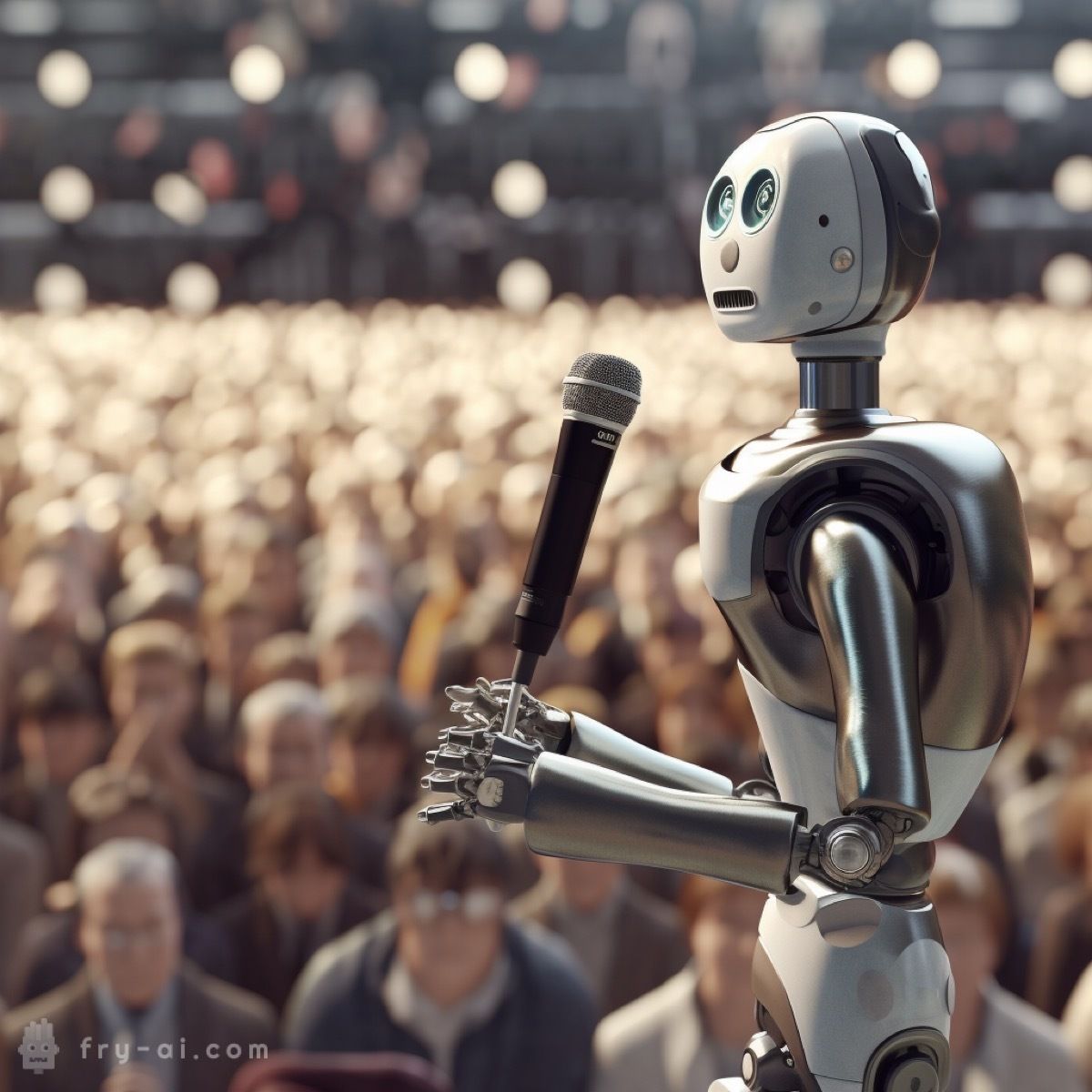
Happy Monday! A new week means new fresh and crispy AI news, so grab your favorite sauce and let’s dip in. 🍟
Today’s Menu
Appetizer: Robots get banned from the Grammys 🎤
Entrée: Is the AI-driven market a bubble doomed to pop? 📉
Dessert: Can AI save the planet? 🌎
🔨 AI TOOLS OF THE DAY
🕵️♂️ CareerGPT: Explore personalized careers you didn’t even know existed. (check it out)
💌 Love Leetr: Automated love letter composition. (check it out)
📹 Thumbly: Supercharge your YouTube thumbnails with AI. (check it out)
ROBOTS GET BANNED FROM THE GRAMMYS 🎤

Q: Which brand of computer will win the Grammys?
A: A dell. 💻
What happened? The Grammy Awards, one of the most prestigious music award ceremonies, has introduced new rules regarding the eligibility of songs created with AI. The Recording Academy, which organizes the Grammy Awards, has updated its guidelines to address the growing presence of AI-generated music. The new rules state that for a song to be eligible for consideration, it must have significant human involvement in its creation process: at least 20 percent of the work must be contributed by a human.
Why? The Academy aims to maintain the artistic integrity of the Awards by ensuring that AI is used as a tool rather than as the sole creator of music.
What does this mean for AI music? The introduction of these new rules raises important questions about the role of AI in music and related, creative industries. How can we define the boundaries between human creativity and AI assistance? Should AI-generated music be treated equally in awards ceremonies? As AI continues to evolve, these questions will become increasingly relevant in music and other artistic fields. Balancing the acknowledgment of technological advancements with the preservation of human, artistic expression will likely be an ongoing challenge for award organizations and society as a whole.
IS THE AI-DRIVEN MARKET A BUBBLE DOOMED TO POP? 📉

The massive spikes in AI-driven stocks cannot be ignored. However, many experts are debating whether this AI market surge can be likened to the dot-com bubble. 📉
What s happening? The stock market is experiencing a massive surge in tech stocks, reminiscent of the dot-com bubble of the late 1990s. The tech-heavy Nasdaq 100 index has jumped 39% so far this year, fueled mainly by massive rallies in AI-related stocks such as Nvidia, Alphabet, and Microsoft. Nvidia, itself, has surged a jaw-dropping 192%. The growing interest in AI has fueled investor enthusiasm, leading to this boom in these AI-related companies.
Why are experts worried? Many experts are voicing concerns over this massive growth in AI-related stocks, saying that people are investing in potential and not in actual production. Financial analyst, John Smith, said, "We are witnessing a speculative frenzy in the AI market. While AI holds great potential, many companies are being valued on promises rather than tangible results. This could lead to a significant correction in the future." Others believe that AI-driven stock prices have not even come close to their potential and remain undervalued.
Regardless of which side one takes on this issue, it is clear that AI is on massive market watch and will continue to be a major factor for many portfolios in the future. 💸
*Disclosure: None of what is stated here is investment advice of any kind. Fry Guy only provides advice on seasonings and dipping sauces.
CAN AI SAVE THE PLANET? 🌎

On one hand, we have experts saying AI is going to destroy humanity … but on the other hand, we have experts saying that AI has the potential to save the planet. 🌍
What’s happening? In a race against time to combat the effects of climate change, experts are increasingly turning to AI and advanced computing as crucial tools. There will be a meeting in San Francisco next month between policymakers and business executives to discuss this and related AI integration.
How can AI help? AI-powered predictive models can simulate various scenarios and help policymakers and business owners make informed decisions regarding renewable energy, conservation efforts, and sustainable practices. Furthermore, advanced computing enables the development of complex climate models, aiding in accurate climate predictions and risk assessments. These models help identify vulnerable areas and formulate targeted interventions to prevent or mitigate the impact of natural disasters caused by climate change.
Despite the ability of AI to revolutionize this data analysis, some have claimed that the water-guzzling servers which are required to run these AI models are more detrimental to the environment than their ability to help reduce climate change. So, like with most good things, there are drawbacks. Trust me, I know … I have gained 10 pounds off French fries in the past month! 🍟
HAS AI TAKEN OVER THE WORLD? CHECK OUT THE FRY METER BELOW

The Fry Meter drops a full percentage point as the EU gets tough on AI via Regulation.